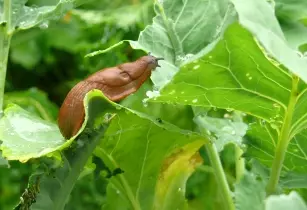Biological crop protection, when combined with chemical crop protection, can be very effective in targeted pest control against mollusks
Attack from mollusck pests including slugs and snails can be devastating for farmers. While there is an array of chemical pest control agents currently available in the market, many farmers are turning to a fully biological solution: nematodes. These are a remarkably diverse species of worms, with up to 20,000 different strains described to date. While some of the species attack crops and are pests in their own right, others are effective in fighting and eliminating insects and snails.
Nematodes are therefore used alongside useful bacteria, viruses, insects and plant extracts for biological pest control. The basic idea is to use harmless organisms to kill or displace crop pests such as locusts, harmful insects, bacteria, molds and slugs that cause diseases and threaten harvests. Although these natural helpers can never fully replace chemical agents, biological pest control provides effective support. Vegetable and fruit farmers particularly appreciate their effects shortly before harvesting, as they protect the crops and fruits without leaving any chemical residues behind.
“Biological pesticides are effective in combating low to moderate levels of infestation,” said Burghard Liebmann, group leader biological crop protection at BASF research. “In most cases, however, the level of infestation and pest exposure is so high that a combination of chemical and biological agents is necessary to provide effective control.” BASF has a strong portfolio of biological crop protection products, including nematodes. “With our very broad product spectrum, we can offer an individual and flexible solution tailored to meet the particular problem and local conditions. This is also a very important consideration in counteracting and preventing insect pests and plant pathogenic fungi from becoming resistant to certain chemical crop protection agents,” Liebmann pointed out.
BASF has developed a product to protect against slugs, Nemaslug, a mulluscicidal powder containing nematodes of the species Phasmarhabditis hermaphrodita. When the nematodes encounter a slug, they burrow into its body through their breathing orifice. The slug loses its appetite within two days and dies in about a week. According to Liebmann, simple principles, originating in nature and highly effective: this is what makes biological pest control so very interesting. “We plan to explore a lot more new applications for biological crop protection in the future,” he added.





